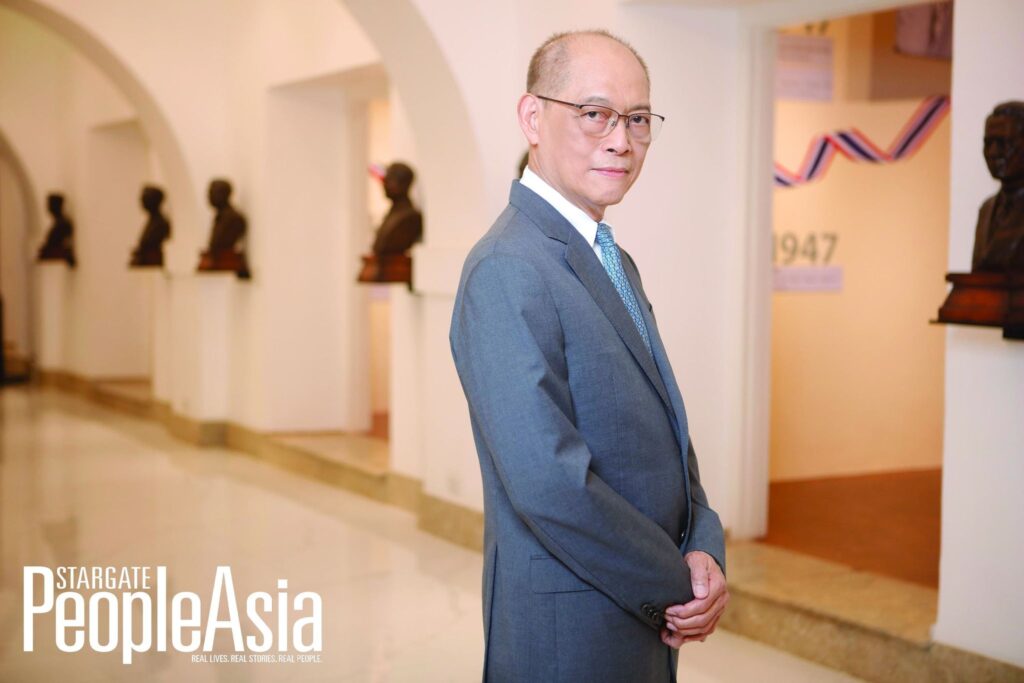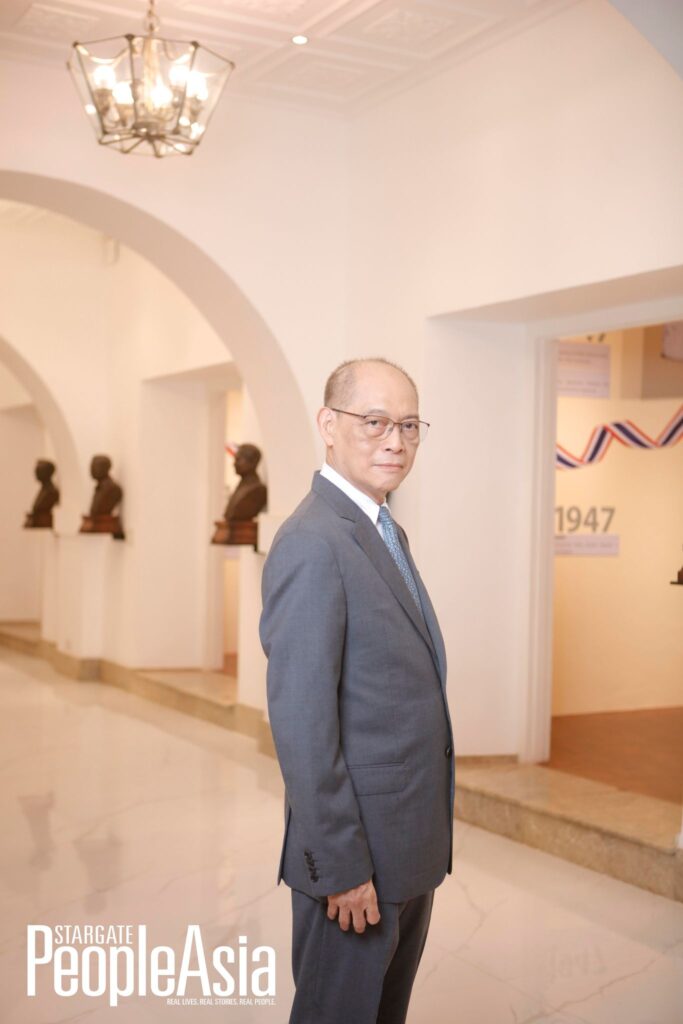By ALEX Y. VERGARA / Photography by DIX PEREZ
A seasoned economist, academic and public servant, Finance Secretary Benjamin Diokno has so far served four presidents. Whether in the Department of Budget and Management, Bangko Sentral ng Pilipinas or the Department of Finance, he has served the country with brilliance, dedication and empathy for the common folk.
Those who follow the news regularly, especially stories on business and the economy, know him well. But you don’t have to be an avid consumer of current events to know that Benjamin E. Diokno, the country’s current Finance Secretary, is a seasoned, trusted and reliable name when it comes to such matters as fiscal policy, the country’s economy and how to best run it.
One of the main reasons is his track record as an economist and public servant, which has transcended several administrations — from the time of the late President Corazon Aquino and then President Joseph Estrada to then President Rodrigo Duterte and current President Ferdinand Marcos Jr.
Whether as Undersecretary and Secretary of Budget and Management (under the Aquino, Estrada and Duterte administrations), Governor of Bangko Sentral ng Pilipinas or BSP (also under Duterte), or in his current role as the country’s finance chief, Secretary Diokno has served with brilliance, empathy for the common folk and utmost dedication, drawing from his years of experience both in the academe and government service.
Early in President Marcos’ term, Diokno and his finance team submitted to him the government’s first-ever Medium-Term Fiscal Framework (MTFF) that serves as the administration’s “North Star” or roadmap in the next six years.
In a nutshell, says Diokno, the framework seeks to attain for the country short-term macro-fiscal stability while remaining supportive of its economic recovery and the promotion of medium-term fiscal sustainability.
This fiscal policy, in turn, aims to bring together the national government’s resources so that they’re mobilized and utilized to gain maximum benefit and high multiplier effects for the economy.
His experience in the academe most likely explains Diokno’s ease in making seemingly complex issues and principles, including the Finance Department’s chief role in and of itself and in relation to other departments and bureaus, easily understandable to the everyday Filipino.

“The Department of Finance operates as the government’s fundraiser,” he continues. “Its main task is to ensure that government is adequately funded to perform its functions. Robust revenue collection and prudent debt management are key to achieving our objectives, as detailed in the MTFF.”
Knowing the job like the back of his hand proved to be advantageous for the finance department as well as the country.
Marcos’ economic team hit the ground running on Day One, reaching out to the rest of the world through international economic briefings and investor roadshows to showcase what’s great about the Philippines, including its strong macroeconomic fundamentals, recent policy reforms to improve the country’s investment climate and the government’s priority areas.
“The Department of Finance’s main responsibility is to generate funding to meet the government’s operational expenditures, expand priority programs to benefit the economy and our people and invest in the national economy’s long-term growth. It’s our job to ensure that the economy grows sustainably and inclusively,” Diokno underscores.
His appointment as the country’s finance chief came at a time when, like other nations the world over, the Philippine economy was taking tentative steps while coming out of the pandemic.
“The most pressing issue at hand, one which required both urgency and prudence, was fiscal consolidation and sustainability,” he says. “We knew we needed a definitive guidepost that would set clear targets over the near and medium terms, and craft the right strategies on how to achieve them.”
This is where the country’s first-ever MTFF proved important. And since it has the support of both houses of Congress as well as the President, Diokno takes pride in the fact that “the finance department and the government is on the same page when it comes to where we want to go and how we should go about in reaching that goal.”
On a personal note, the UP-educated Diokno, who also took graduate studies at Syracuse University in New York, cites some of his proudest achievements as finance chief: “We have delivered many reforms one year into the President’s term. These include the enhancements to the public-private partnership policy framework and the establishment of the Maharlika Investment Fund — the country’s first sovereign investment fund that shall be an innovative game-changer in terms of financing our development needs.
“But I would have to say that I’m proud of the ordinary, everyday work we do at the Department of Finance — crafting tax, fiscal and economic reforms; engaging with legislators and decision-makers to arrive at the best possible solutions to the country’s most pressing problems; and promoting the Philippines to the world as one of the best places to do business.”
As a proud Filipino, Diokno dreams of seeing the Philippine economy firmly established alongside other leading economies in Asia Pacific. But his ultimate dream goes beyond achieving headline growth numbers, which are, after all, mere indicators that should ultimately serve a purpose.
“It boils down to making these numbers work for the Filipino people in terms of reduced poverty, more and better jobs, higher levels of education and a healthier people, among other important development outcomes,” he says.
And how optimistic is he in achieving his vision for the country? “We have all the elements in place to rise among our high-flying peers. As long as we stay united, and our political leaders and policy makers remain focused on what ultimately matters — a better life for all Filipinos — then this dream will be achievable,” Diokno concludes.
Shot on location at Teus Mansion, Malacañang /Art direction by Dexter Francis De Vera / Styling by George Palmiano of MGP / Grooming by Eddie Mar Cabiltes
Special thanks to First Lady Liza Araneta-Marcos and Deputy Social Secretary Dina Arroyo-Tantoco







